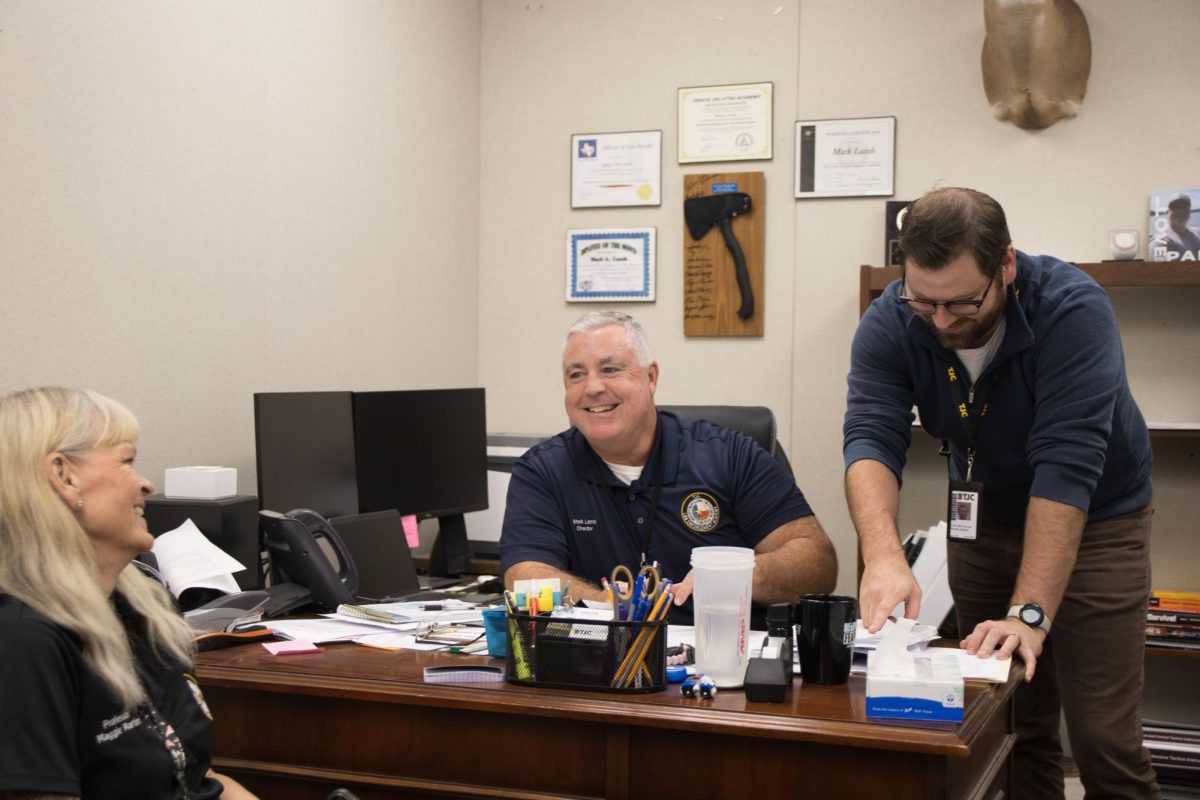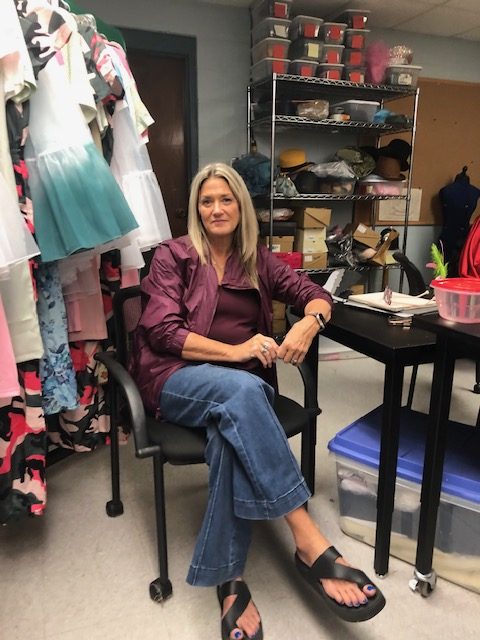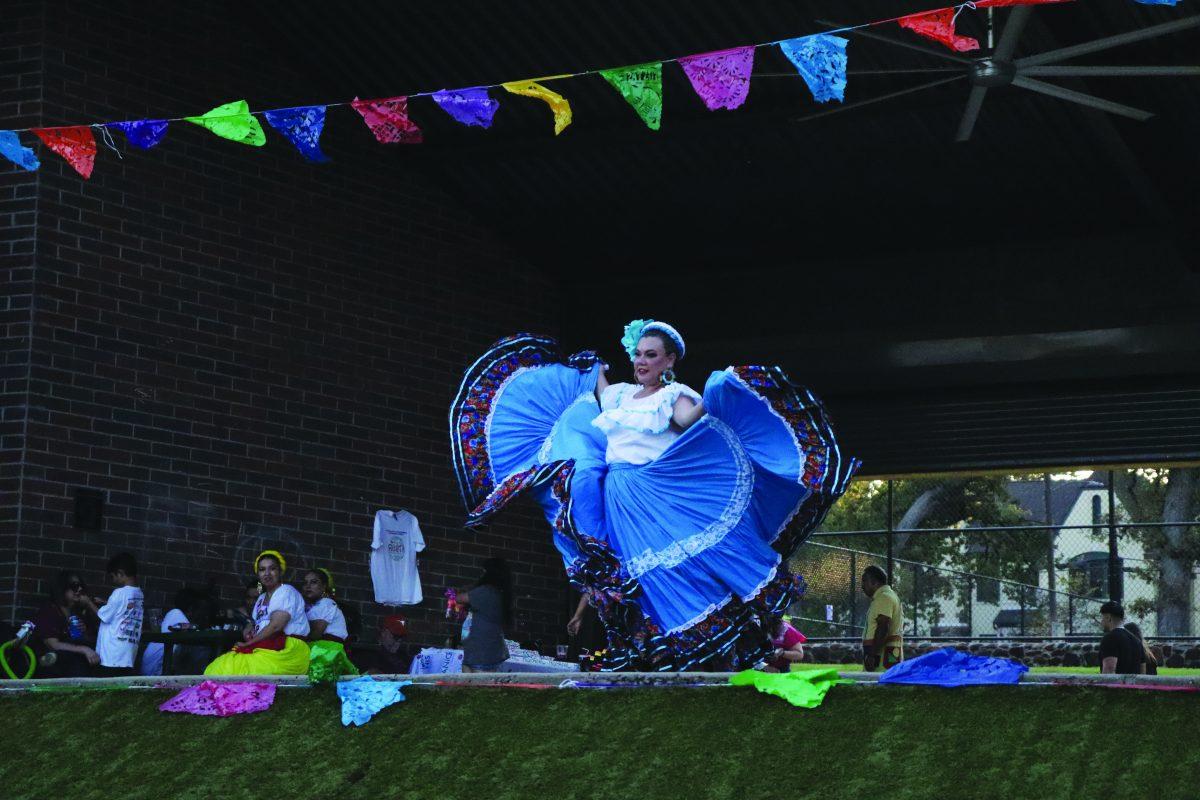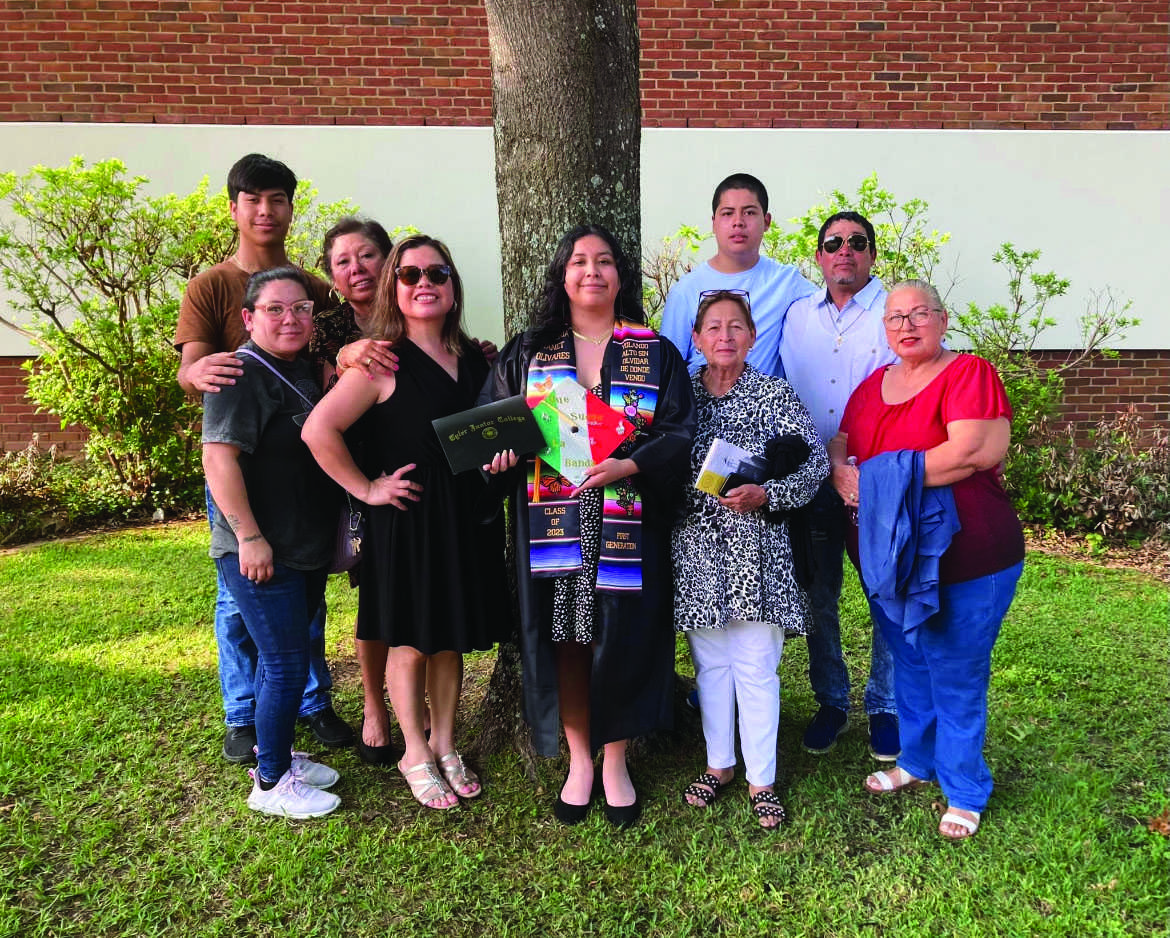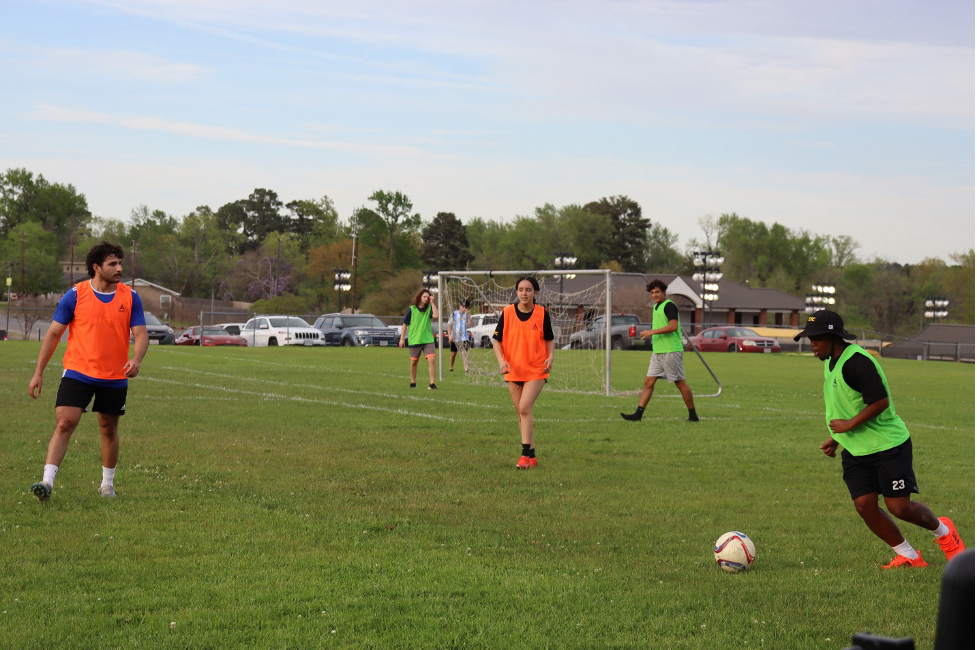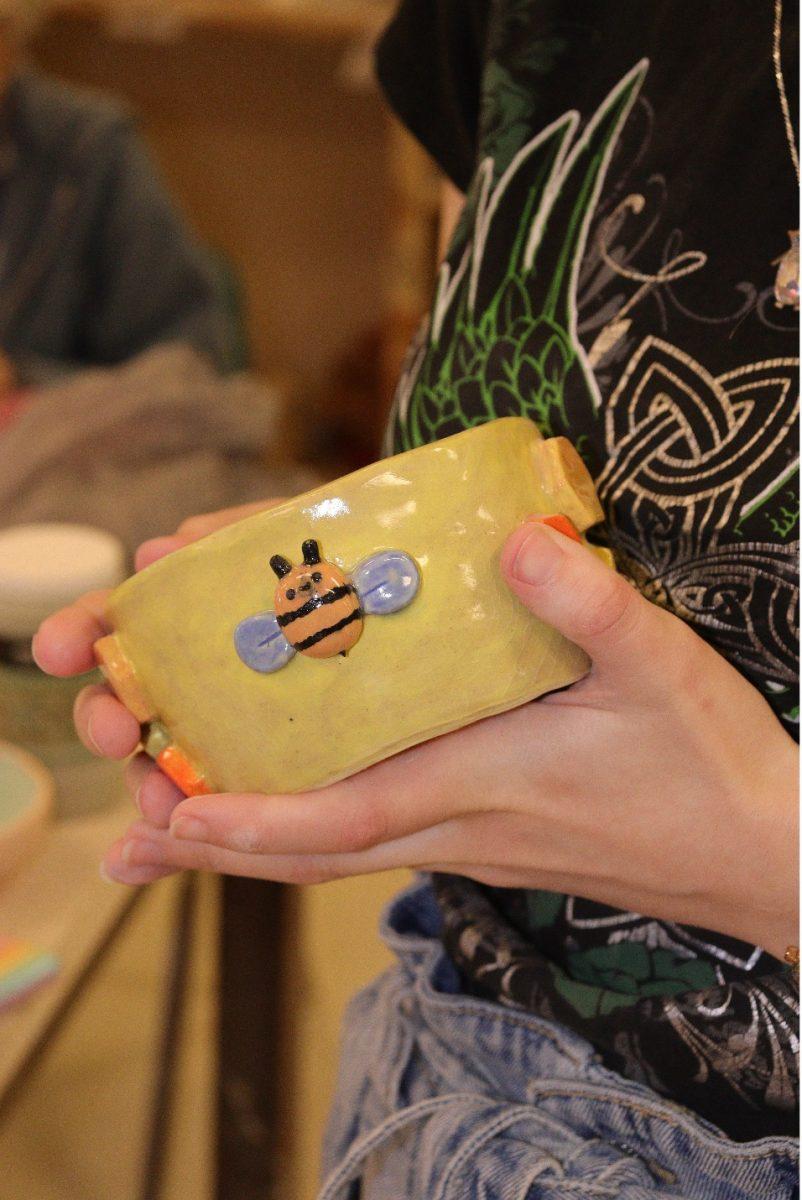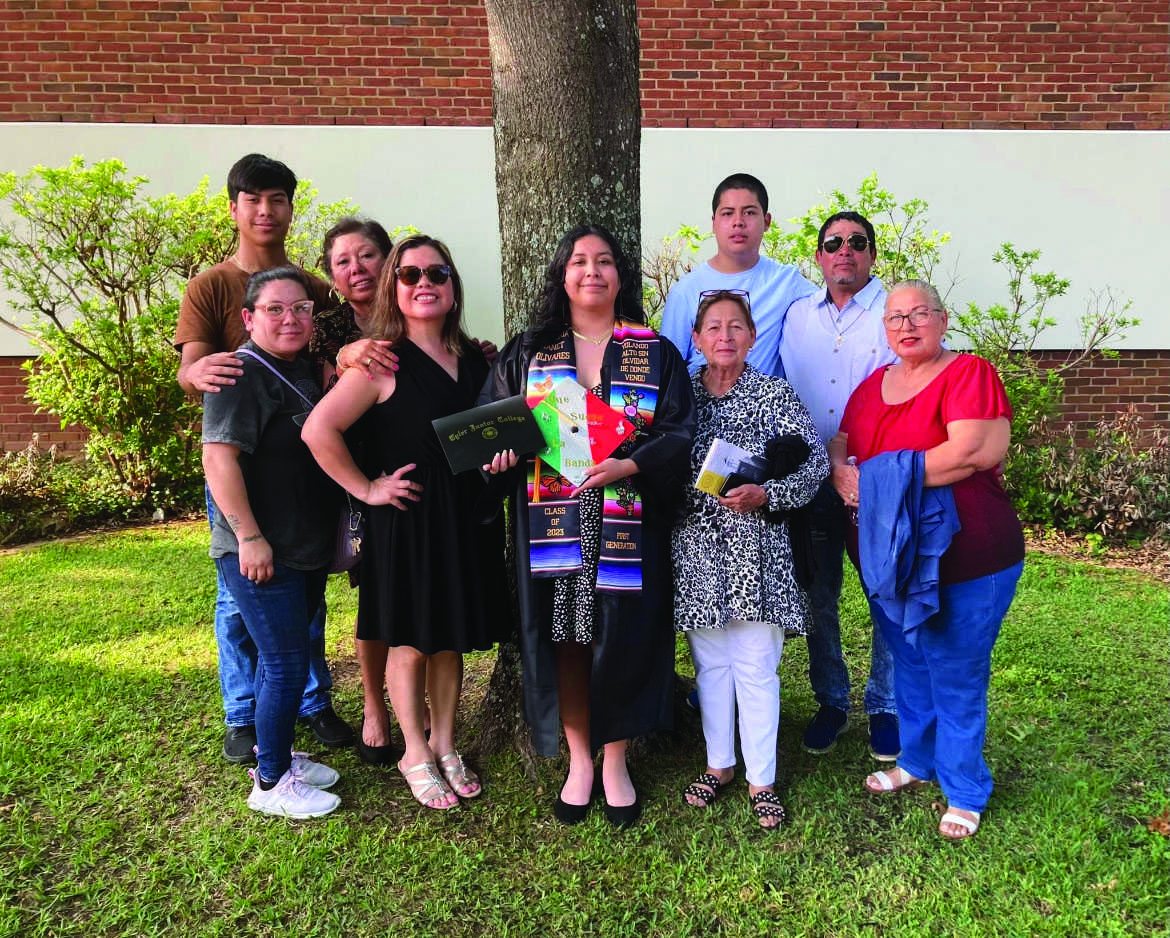Rehearsing the same phrase in my head: “My name is Adriana, I’m from Colombia… My name is Adriana, I’m from Colombia…” I repeated it so many times that, for a moment, I forgot it was already my turn. Eyes were fixed on me, waiting for my answer.
“My name is Adriana, I from Colombia,” I said. Moments later, I was already repeating another phrase to myself: “I did the best I could… I did the best I could…” I kept telling myself that, trying to silence the perfectionist inside me who kept reminding me that I had mispronounced it.
Almost three years have passed since that moment when I decided to take a risk and go after what I had always wanted, a better future, a better life, and the opportunity to immerse myself in a different language. Over time, you get used to the fact that, even though the fear of speaking that second language is still there, sometimes you don’t even notice which language is being spoken to you. Other times, the fear remains, but it becomes your friend, and you learn to live with it. Then, there are days when silence takes over, or you simply lower your head and pray that no one notices you because it seems like the best option.
Still, each day brings new challenges, new lessons, things to improve, and many, many embarrassing moments to experience that someday you will laugh at them. You push yourself to understand and to be understood. However, you will not succeed in being completely understood every time. In one of my communication classes, my professor explained that only a small percentage of our message is actually understood exactly as we intend to communicate it. It is impossible for 100% of what we say to be perceived in the exact way we imagine it in our minds.
Over these past few years, I have come to the conclusion that learning a new language is not just about grammar, verbs, vocabulary, or listening to audios every day to train your ear to a new voice. Learning a language is much more than that; it is taking a leap into a new world, a new culture. It feels as if, despite being a young adult, you are being reborn. Every day, you feel like a child, experiencing everything for the first time.
The other day, I was with a friend, leaving her sister’s house. Suddenly, she said something I didn’t fully understand, and my first instinct was to take it literally. She said, “Adriana, you have your dogs out.” I paused for about 10 seconds before replying, “No, I don’t have dogs, those are your sister’s dogs.” Instantly, she started laughing while I looked at her, confused. I thought to myself, this must be some kind of slang. For those who, like me, didn’t know, “You have your dogs out” apparently means that someone is barefoot, with their feet exposed. I told myself, I learn something new every day,and yes, I truly do.
I have studied and dedicated hours and years to English since I was 10 years old. My fascination with this language began in fifth grade when my English teacher taught us a song: “I See the Light” from the Disney movie “Tangled,” my favorite. From that moment, my love for musicals grew, along with the need to learn English, because that was the only way I could sing those songs. Even though they were also translated into Spanish, for some reason, the English version attracted me more.
Years later, without realizing it, I took a plane to Nantucket, a beautiful island near Boston. If you haven’t been there, you should visit. It’s breathtaking in the summer, and I spent two of the best years of my life there. I highly recommend it to everyone. While living there, I faced many challenges that, although difficult, helped me improve my English skills. Of course, the sea and the waves were my companions throughout that journey.
As I mentioned before, speaking grammatically well is not the only important thing—it’s also about expressing your opinion with confidence, knowing that, even if the structure isn’t perfect, your message will still be understood. However, when you are still learning a language, the risk of being misinterpreted is high. This is the reality many foreign students face every day, whose first language is not English—or at least, it is the reality I am experiencing now.
I have spent years trying to understand why I get nervous when speaking, why my mind goes blank when it’s my turn to talk in class. I’ve wondered how many opportunities I have lost simply because I was afraid of making mistakes. Through self-exploration, I realized the issue was not just how I spoke or pronounced words but also what was behind my words; what emotions were tied to my speech, where my mind was, and how I perceived myself. I also understood my fear of speaking in another language came from the fear of being judged and rejected. As human beings, we have an instinctual need to belong and be accepted. In my case, the fear of others’ opinions—especially native speakers—and the fear of rejection always surfaced when I had to speak in class or greet someone in the hallway.
Class debates, serious questions, conversations with friends who speak too fast, feeling excluded because you don’t understand what they’re talking about or how to join in… these are all situations I have experienced. However, one day, I asked myself: Adriana, are you really going to miss the opportunity to meet an amazing person or get that job just because you’re afraid of being heard and making a mistake?
For those going through the same thing, I want to share what I’ve learned; practicing every day, studying new words, reading for at least two hours a day, and being patient with myself have been key tools in improving. Most importantly, I’ve realized I have to keep speaking with others, even when fear is present.

I have also learned the importance of knowing how to communicate in any setting. There are millions of personalities in this world, and each person is a whole new universe to discover. Confidence, empathy, respect and honesty are fundamental to effective communication, and receiving the same treatment from others is equally crucial. Opening your mind is the first step to realizing there is a whole new world beyond your own.
In conclusion, learning a second language allows you to discover parts of yourself that you didn’t know existed and you didn’t even realize needed improvement. It also teaches you that you can’t control how others react, even when they know you’re not a native speaker. And, most importantly, it teaches you making mistakes is OK. Speaking a second language is a sign of perseverance, resilience and courage. A good friend once told me: “Adriana, it doesn’t matter how slow you go, as long as you don’t stop.”
The other day, I went to the library to ask about tutors who could help me improve my speaking skills since I need someone to evaluate me and tell me what I need to work on. This spring, they launched an ESL program for students who want to improve their English. It started on Feb. 4 and will continue from 5 to 7 p.m. every Tuesday and Wednesday in the Jenkins Hall, Room 238, in case anyone is interested in attending. For more information, go to the library.

